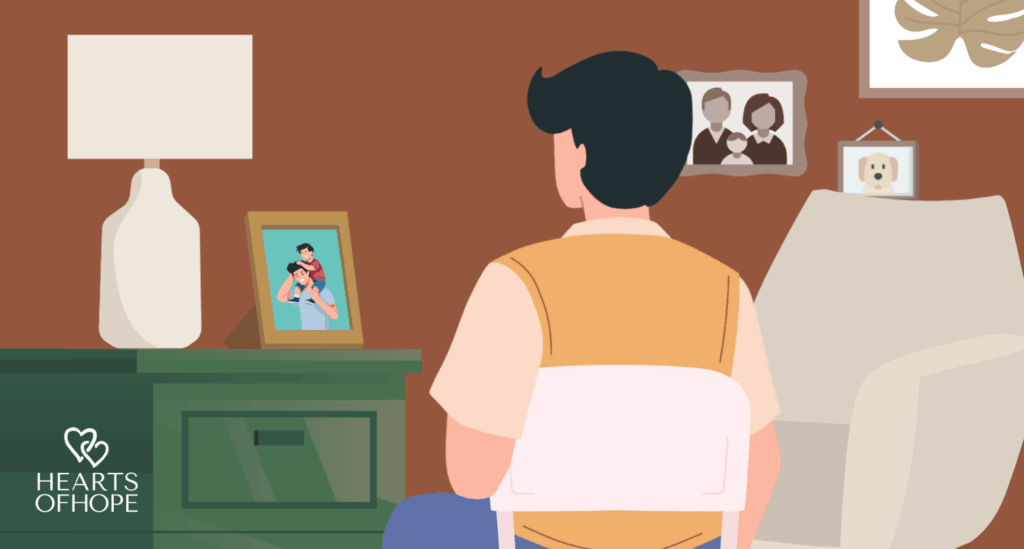When Fathers Grieve Their Children

How to Support Fathers After a Loss

None of us can imagine the pain of losing a child until we’ve lived it. But even though this nightmare is a reality for thousands of parents, there is very little research on the grief experience of fathers. We still fall back on old stereotypes as mothers being more bonded to their children and fathers showing less emotion. But fathers whose children die are suffering—sometimes more than mothers, who are more likely to express their emotions and seek support. The American Academy of Pediatrics found that because fathers more often cope by not talking about their grief with other people, returning to work early, and focusing on goal-oriented tasks, their intense grief and post-traumatic symptoms often last longer than in mothers.
Child loss includes miscarriage and stillbirth, which are not talked about enough. But when we do talk about these losses, we tend to focus on the experience of the mother who carried the baby. Fathers grieve these losses, too. They just might not always show it in the way we expect to see grief in movies and online. So what can we do to support fathers and father-figures who are making their way through the loss of a child?
1. Pay attention to how he’s coping. Is the father distracting himself with more and more hours at work, or running extra errands to pass the time? You don’t need to jump right into asking about his emotions. Start by asking if you can do your grocery shopping together, or if he wants some help with the lawn project he began. Isolation is a common part of grief, especially for men who are more conditioned to keep their feelings to themselves. But you can support a grieving dad by finding small ways to make sure they spend less time alone, even if that time is spent in quiet companionship.
2. Acknowledge difficult days. Every day is different in grief, but holidays, birthdays, and cultural celebrations like Father’s Day can be especially intense for people who are going through loss. Don’t ignore those days. Instead, send a card or a simple text message to say you know that the day might be difficult and you are thinking of the father and his child.
3. Be patient. The pain of losing a child will never go away, even if it lessens overtime. If a father you know recently went through a loss, he may spend months or years in shock before he even begins to process it. Don’t stop checking in after the funeral or when he goes back to work. And don’t be surprised if he seems better before he seems worse. Instead of trying to give advice and expecting a timeline, be understanding and nonjudgmental.
4. Keep including him. Even if he says no to nine invitations to get together in a row, he might say yes to the tenth. Parents who lose children often lose friends and relationships because people don’t know what to say, and this is especially true for fathers. Don’t pressure the father in your life to talk about their loss, come to a happy hour, or make it to a family birthday party. But always include him and keep that door open so that he knows you won’t abandon him. When he is ready, he knows you will be there.
If a grieving father you know seems stoic and strong, don’t assume that means he’s ok. Make sure he knows that you are there for him in whatever ways he needs you to be—that might be mowing the lawn together one day, and years later, it might be listening to him talk about all the layers of his grief. Most importantly, don’t forget about dads, their grief, and the children they’ve lost.
Photo courtesy of Unsplash


